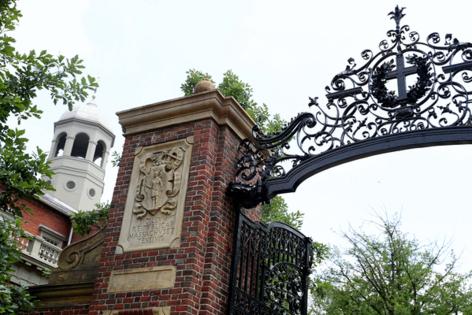Treasury reviews hundreds of colleges' tax-exempt status over race
Published in News & Features
The U.S. Treasury Department is considering changing rules to revoke tax-exempt status for colleges that consider race in student admissions, scholarships and other areas — potentially threatening the financial stability of hundreds of institutions.
The proposals would bar private, nonprofit schools from remaining tax exempt if they favor any racial groups in matters such as financial assistance, loans, use of facilities or other programs, according to people with knowledge of the deliberations, who include a staffer in the Treasury’s Office of Tax Policy.
That office has been reviewing the draft language, said the people, who asked not to be named discussing private talks. The proposals are being drawn up as IRS revenue procedures — a form of guidance for interpreting and enforcing tax laws. They could take effect without congressional approval.
If enacted, the changes would dramatically expand the administration’s effort to reshape higher education and combat what President Donald Trump has characterized as a left-leaning bias at many institutions. So far, the administration and congressional allies have pummeled Harvard University and Columbia University over claims they allow antisemitism on their campuses, while also taking issue with certain diversity programs.
The proposals haven’t been approved and could still change or be rescinded. It’s unclear which officials initiated the effort.
The IRS is operating independently to enforce tax laws, and neither the White House nor the president is directing the agency, a White House official said. A representative for the Treasury declined to comment, and the IRS had no immediate comment.
While the Supreme Court ruled in 2023 that schools can’t consider race in admissions, the draft changes at the IRS would go much further, potentially teeing up scrutiny of all sorts of practices and programs inside more than 1,500 colleges and universities, including every Ivy League school.
Such schools benefit from tax-exempt status in a variety of ways. They don’t pay property taxes on educational buildings, they can sell bonds that pay interest exempt from federal taxes, and donors can deduct their gifts. The breaks have helped many top schools undertake ambitious construction projects and amass multibillion-dollar endowments.
Existing regulations let schools keep their tax-exempt 501(c)(3) status while favoring racial minority groups — if the “purpose and effect” is to promote that school’s “racially nondiscriminatory policy.”
The new proposals define race as including color and national or ethnic origin. The measures would effectively require schools to adopt race-blind policies or risk paying what would collectively amount to billions of dollars in taxes.
Compliance would likely mean ending many programs that try to counter longstanding disparities in wealth and higher educational experience among certain minority groups, including Black and Hispanic students.
While the proposals don’t focus on religion, the references to nationality and ethnicity could give the administration more leverage when scrutinizing how schools handle issues tied to Israel or allegations of antisemitism.
The clauses under discussion demonstrate how officials across the Trump administration and in Congress are finding myriad levers to drive his agenda. For example, agencies including the departments of Education, Homeland Security and Health and Human Services recently turned up pressure on Harvard by seeking to withhold visas for international students and by cutting federal funding.
Those efforts haven’t been confined to the school itself.
A student-run legal publication, for example, was accused by two of the departments of considering the race of authors when selecting articles. The Harvard Law Review, which operates as a separate 501(c)(3) from the university, has said it is committed to ensuring its activities comply with the law.
Still, the IRS is typically considered politically independent. After former President Richard Nixon tried to use it to punish his perceived enemies, Congress pushed through a measure aimed at preventing any president, vice president and officials close to them from ordering up or meddling in IRS investigations.
There is some precedent for stripping a school of tax-exempt status over discriminatory practices. In 1983, the Supreme Court ruled that the IRS could revoke Bob Jones University’s tax status over allegations it discriminated based on race. The school later apologized for its past policies and regained its tax status.
In late May, after Treasury Secretary Scott Bessent said the Trump administration would “move forward” with efforts to revoke Harvard’s tax-exempt status, the Treasury Department suggested that higher education would face continued scrutiny from the IRS.
“Whether it’s Harvard or any other university, tax-exempt status is a privilege and not a right,” the agency said in a May 23 statement. “It is up to the established processes of the IRS to ensure that any nonprofit is abiding by its legal obligations to retain such a designation.”
_____
(With assistance from Daniel Flatley, Laura Davison, Mario Parker and Peter Eichenbaum.)
_____
©2025 Bloomberg L.P. Visit bloomberg.com. Distributed by Tribune Content Agency, LLC.







Comments